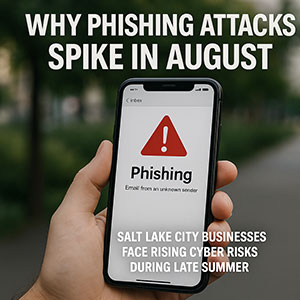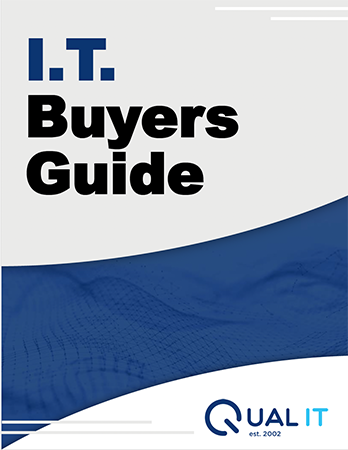 Salt Lake City Dental Practices Face Heightened Cybersecurity Risks During Late Summer
Salt Lake City Dental Practices Face Heightened Cybersecurity Risks During Late Summer
You might be easing back into your regular schedule after a summer break, but cybercriminals are just getting started. In fact, phishing scams consistently spike in late summer—and dental practices in Salt Lake City are prime targets. As a local dental provider, you’re not just protecting fillings and crowns—you’re safeguarding sensitive patient data, billing systems, and your reputation.
If you’re a Salt Lake City dental office searching for reliable managed IT services, knowing why phishing attacks rise in August can help you stay ahead of costly threats and HIPAA violations.
Why the Increased Risk?
Cybercriminals know your team is stretched thin in the summer. Vacations, reduced staffing, and a distracted front desk can create the perfect conditions for a phishing email to slip through unnoticed.
Check Point Research recently reported a 55% increase in vacation-related domains registered in May 2025 compared to the same time last year. One in every 21 of those domains was flagged as malicious. Many impersonate travel sites like Airbnb or hotel booking platforms—sites your team might be accessing from the front desk between patient calls.
And don’t forget about back-to-school phishing. Even if your practice has nothing to do with education, your staff might be checking personal email on work computers to coordinate school plans. All it takes is one click on a fake university email to compromise your entire network.
For dental offices in Salt Lake City relying on tools like Dentrix, Eaglesoft, and Open Dental, a single breach can disrupt access to patient charts, appointment schedules, and billing workflows—leaving your team stranded.
What Salt Lake City Dental Offices Can Do About It
Today’s phishing emails are sleek, professional-looking, and increasingly written by AI. You can no longer rely on bad grammar and typos to spot a scam. That’s why proactive training and dental-specific IT support are critical.
Here are smart, practical steps to reduce your risk:
- Train your team regularly. Make sure your staff knows how to spot fake emails—especially those mimicking patient inquiries or software updates.
- Verify all links. Hover before you click. Scam links often include subtle typos (like .net instead of .com) or unfamiliar domain endings like .today.
- Access sites directly. Instead of clicking email links to log into portals, type the website address directly into your browser.
- Turn on Multifactor Authentication (MFA). MFA adds a second layer of protection. Even if someone gets your password, it helps keep your systems secure.
- Use a VPN for remote logins. Especially important if staff access software like Dentrix or Open Dental from home or on public Wi-Fi.
- Keep personal email off work devices. It’s an easy boundary that protects your patient data.
- Talk to your IT provider about endpoint detection. Tools like EDR (Endpoint Detection and Response) monitor activity and alert your IT team instantly when something suspicious happens.
When you work with a local Salt Lake City IT company like Qual IT, you get more than just technical support. You get a partner who understands the unique vulnerabilities of dental environments—from integrating digital X-rays to maintaining HIPAA compliance.
Stay Protected This Season—And All Year Round
Phishing attacks aren’t just a nuisance—they’re a serious risk to your operations, your compliance status, and your patient trust. For practices like yours in Salt Lake City, managed services that specialize in dental cybersecurity can make the difference between a stressful breach and a smooth day at the office.
Don’t let a fake email disrupt your practice. Let Qual IT handle the technology so you can get back to what you do best—caring for your patients.



